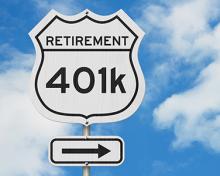
Whenever you leave a job that had a 401k benefit — whether you retired, quit or were fired — you have a decision to make about your 401k plan. The IRS allows you to make a tax-free 401k rollover into another employer-qualified retirement plan or into an Individual Retirement Account (IRA.) Typically, most people will initiate a 401k rollover to a Traditional or Roth IRA. The 401k rollover to IRA, sometimes called a 401k IRA rollover or 401k to Rollover IRA, is a common move people make when they leave their job.
The process begins with your previous employer. They will have paperwork for you to complete that will authorize them to transfer the account. Typically, they need to know the name of the institution that you are transferring the funds to, your IRA account number at that institution and where to send the check. Often, the spouse's notarized signature is also required as is a letter from the receiving institution consenting to accept the funds. Each form is different but we would be happy to look it over and help fill in the blanks! You should also ask your previous employer about possible withdrawal fees.
How to Do a 401k Rollover to IRA
- Inform your previous employer that you want to do a 401k rollover to IRA. Make sure your previous employer makes the check payable to Bath State Bank. This is called a trustee-to-trustee transfer and it helps you avoid the automatic 20% tax withholding!
- Open an Individual Retirement Account (IRA) at Bath State Bank.
- Once the transfer is complete, your money will be sitting in some interest-bearing account
The tax rules around 401k rollovers are simple. The 401k and IRA are treated the same from a tax perspective. Therefore, when you properly move your money directly from one to the other, the transaction is tax-free.
Cashing out your 401k is a different situation altogether, as when you cash out your 401k, you’ll be taxed on the withdrawal. The combined federal and state taxes could be significant. Also, you may be subjected to a 10% early withdrawal penalty if you are not yet age 59-1/2. Assuming an effective combined federal and state tax rate of 35%, a $100,000 cashed out of 401(k) could cost you some $45,000 in taxes and penalty . . . leaving you with only approx. $55,000. (Consult with your tax professional.)
For more information, please call 765-732-3022 or 800-463-7464.